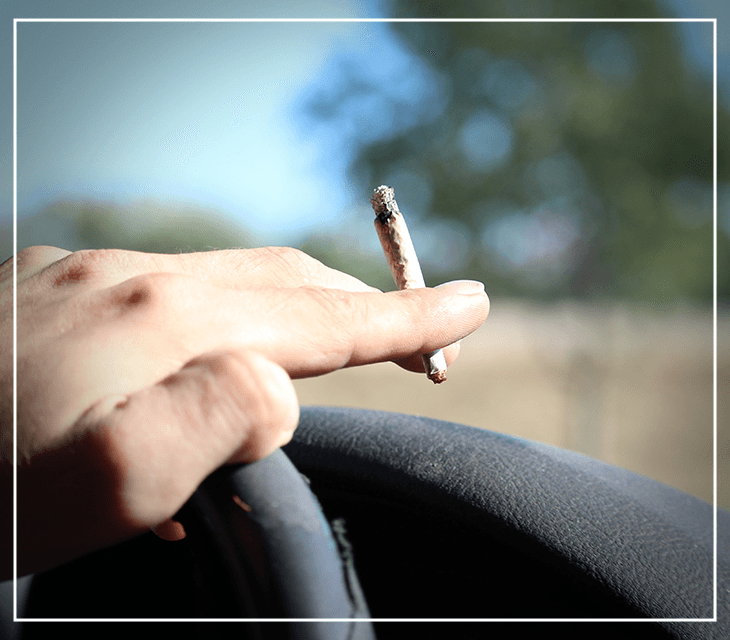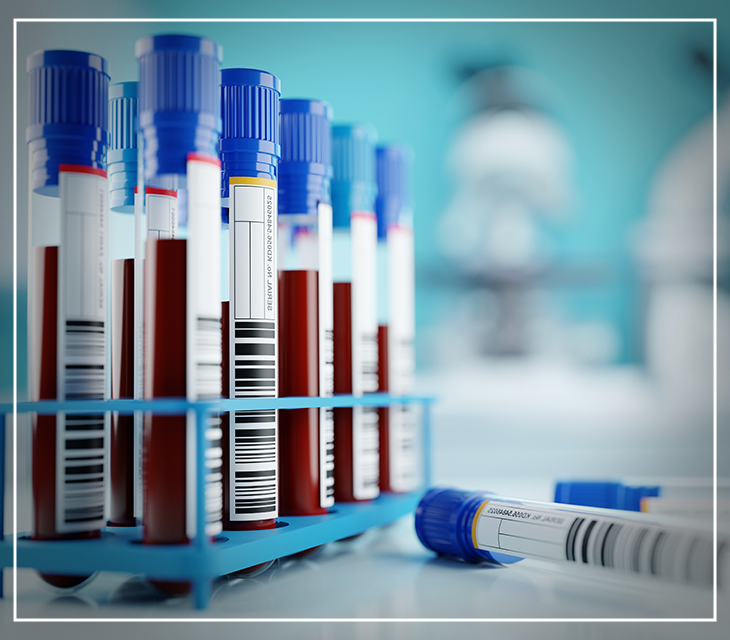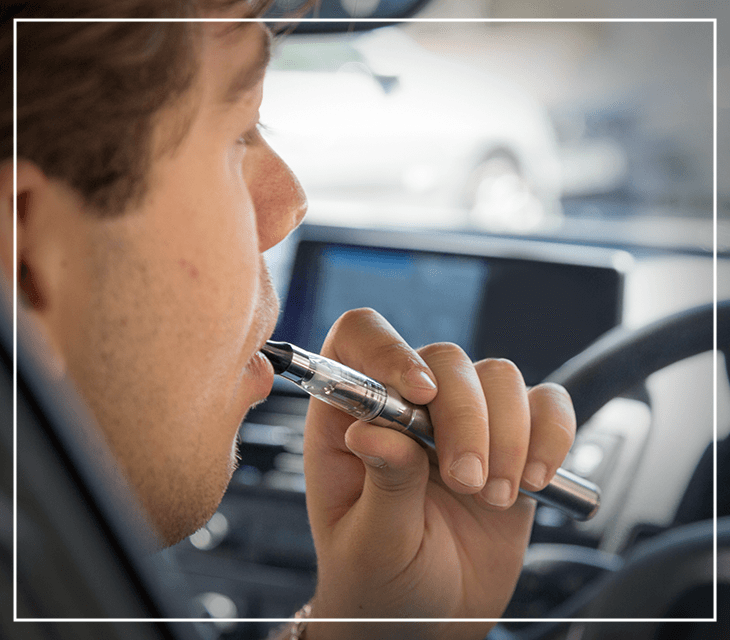
California DUI
Marijuana Lawyers
Proudly Service Clients Since 1979
The possession of marijuana has long been a criminal offense across the country. But on January 1, 2018, California legalized the possession (by those over 21) and sale of up to one ounce of marijuana for recreational purposes. However, this legalization of marijuana has no effect on the state’s laws regarding driving a vehicle while impaired by marijuana — or, as it is often called, “driving under the influence of marijuana,” “driving with a marijuana high,” or “driving stoned.”
Driving under the influence of any drug is a crime. This includes illegal narcotics, prescription medication, prescribed marijuana, and on some occasions, even over-the-counter medications. The offense is often referred to as DUI drugs, DUID, drugged driving, driving under the influence of marijuana or any combination of drugs.
At The Law Offices Of Taylor & Taylor, we are proud to offer our clients top-quality legal counsel.
Call us at (562) 330-4173to schedule a free initial consultation with a member of our team if you are facing these serious charges.



-
"Jeanne Normandeau is a great lawyer. She knows how the Riverside court judges work."
Jeanne Normandeau is a great lawyer. She knows how the Riverside court judges work. She will fight for you and will get you the best results after fighting with the judge and DA. She is honest and smart. Never had any problems, answers all questions and is always easy to contact. If you have the money, I recommend Jeanne. The public defender and judge will offer you the worst deal you can get.
Joe E. -
"I would recommend this firm with no qualms!"
I received counsel in a sensitive legal matter from Lawrence Taylor Sr., and his advice was spot on. I did some research and I also know that the senior Mr. Taylor is in the top echelon in his field. He has written text books on DUI and he has taught the topic in law school. I would recommend this firm with no qualms!
Jerry S. -
"They will fight strategically to help you win your case."
These are the best lawyers in LA/OC when it comes to DUI cases. They will fight strategically to help you win your case. My Attoney Chris Taylor was impeccable in many aspects; one he interrogated the officer causing him to fumble with his initial statement; two he is well respected within the courtroom; three he keeps you well informed with everything he is doing and what you may need to do. I can't be more pleased with the outcome of his performance. Thank you God for Taylor and Taylor!
Kendall L. -
"Mrs. Normandeau is by far the hardest-working and most diligent attorney I have ever met. She could be reached if I ever needed to get ahold of her, whether it be email, call, or text. Not only was she available but was willing to talk about any questions."
I cannot express enough gratitude towards Taylor and Taylor's Attorney, Jeanne Normandeau. I hired Mrs. Normandeau for a VERY messy DUI case. Not only did she approach it with the utmost professionalism, but also displayed a level of empathy that is unmatched in this profession.
Mrs. Normandeau is by far the hardest-working and most diligent attorney I have ever met. She could be reached if I ever needed to get ahold of her, whether it be email, call, or text. Not only was she available but was willing to talk about any questions I had or work through any legal issues. Mrs. Normandeau's unrelenting work, extensive preparation, and tireless advocacy were instrumental in successfully dismissing my case.Bruce R. -
"Christopher always made me aware of what was going on with my hearings, and got me the best outcome possible."
When you need to get a lawyer, you aren't usually in a great situation. I wasn't at least. Christopher and his team never made me feel ashamed, they just help me get through a situation where sh*t happens. Christopher always made me aware of what was going on with my hearings, and got me the best outcome possible. He made things easy to understand, helped with the paperwork, and I while I *hope* to not have to seek his services again, I would highly recommend him and his team for anyone needing a lawyer!
Jessica S. -
"I have come across many attorneys in my life and I have never been treated as well as I have her"
I have come across many attorneys in my life and I have never been treated as well as I have here. Every phone call was returned in a timely and courteous manner. The first consultation was very professional, and my attorney Chris patiently answered every question I had. In situations like this, responsiveness is key and this firm never left me feeling uninformed. I was very satisfied with the outcome of my case and would definitely recommend this firm to anyone in need of a DUI defense attorney.
Anthony D. -
"Thankfully Mr. Taylor was able to help fight my case without me ever having to go to court"
You should never drink and drive anywhere, but especially don't do it in la Jolla! Cops down here have nothing better to do then make your life miserable. It is also a college town which adds assault to injury. I should take my own advice because I was recently arrested for a DUI down in La Jolla. A friend of mine referred me to Mr. Taylor's office and I am extremely glad I got into contact with them. I hardly blew over the legal limit and did perfectly fine on the sobriety tests but still was arrested. Thankfully Mr. Taylor was able to help fight my case without me ever having to go to court and I was able to have the charges dropped. Extremely professional law firm with the experience to get you the results you want.
Steven K. -
"I have practiced for a long time, and can tell you that when these guys walk into court the clients will fair 1000% better!"
This is a top level law firm. The Bible of DUI's comes from this firm! These are the guys other attorneys call when they are stuck on a legal issue or need some guidance. There is no other firm or DUI attorney that has the kind of experience these folks do. I have practiced for a long time, and can tell you that when these guys walk into court the clients will fair 1000% better! Most attorneys do not have trial experience, and if your case must go that direction it's scary to see non experienced dui attorneys walking in with no experience. NOT these guys. Chris Taylor is one of the best trial attorneys I have ever seen; and a force to be reckoned with. The folks I have recommended have had nothing short of positive experiences. A DUI is nothing short of stressful, and can have such an impact on a persons life between restricted or no driving privileges, classes, the cost, and the general stress of it all. This law firm handles all of these issues with such ease, and most important you know you are the most well represented client in any court or DMV hearing
Tania C. -
"Chris not only got me down to a Wet Reckless but was able to significantly reduce the penalties I would face."
Im am so glad that I read the reviews of Taylor and Taylor after my first "incident" and immediately contacted them. Chris was great at calming my nerves as this was my 1st offense and at a .06 it was right on the line on a trial or pleading it out. Chris not only got me down to a Wet Reckless but was able to significantly reduce the penalties I would face. His whole office staff was also very helpful and he returned my calls when I had questions if not the same day, the next. I plan on having my record expunged and will be going back to him for that. He attended all DMV and court hearings on my behalf which took A LOT of stress off me. I strongly recommend him.
Suzi J. -
"Truly great team of lawyers. Handled everything the very best they could. Won DMV hearing and got my case expunged for a minor issue, so no record, as it should be! Can definitely rely on them."
Truly great team of lawyers. Handled everything the very best they could. Won DMV hearing and got my case expunged for a minor issue, so no record, as it should be! Can definitely rely on them.
Nick T.
DUID vs. DUI
Vehicle Code section 23152(f) and (g) state this offense has the same consequences as driving under the influence of alcohol.
The law indicates the following:
- It is unlawful for a person who is under the influence of any drug to drive a vehicle
- It is unlawful for a person who is under the combined influence of any alcoholic beverage and drug to drive a vehicle
Driving both under the influence of drugs and driving under the influence of alcohol are very similar. It affects your nervous system in a way where you are impaired and you are in an altered state of consciousness. However, there are significant differences between the two offenses when being charged.
California Vehicle Code section 23152(a) & (b) state that it is illegal to drive under the influence of alcohol, and to drive with a blood alcohol concentration of .08% or more. California law does not specifically prescribe a prohibition on the amount of a given drug. Whether it be a prescription medication, marijuana, or a controlled substance, California law does not actually prohibit a certain amount of a given drug in a person’s system. Rather, the law simply prohibits a person from “driving under the influence” of a drug. In order for a person to be considered “driving under the influence” of a drug, it must have such an effect on a person that their mental or physical abilities are so impaired that they are no longer able to drive a vehicle with the caution of a sober person, using ordinary care, under similar circumstances.
Individuals suspected of DUID are often put through the same or similar tests as drivers suspected of alcohol DUI. However, a “drug recognition expert” known as a “DRE” is usually called into the case when drugs are involved to examine the individual in question. A DRE is supposed to have special training related to identifying the symptomology of different types of drug use, and they can testify to the symptoms and effects of drugs or marijuana and determine if the person is impaired in their opinion.
Important: A driver can be using marijuana or medication legally with a physician's prescription, and yet if they are legally impaired, they can be charged with driving under the influence of drugs according to CVC 23152(f). In fact, there are circumstances where sometimes over-the-counter products and medications, such as Benadryl or Nyquil, can be alleged to have caused a person to be “driving under the influence of a drug”.
In addition, a DUID Is significantly different from an alcohol-related DUI in terms of the potential consequences in the DMV. If a person is arrested because of an alcohol-related DUI, then the DMV can impose an “administrative suspension” on their license if the person refuses the chemical testing or if there is a BAC above .08%. Again, in DUID situations, no amount of drugs can cause an “administrative suspension.” Therefore, the DMV cannot impose an administrative suspension due to any amount of drugs found in a person's system, however, they can still impose a suspension if the person was validly arrested for a DUID and refused chemical testing. The DMV can also impose a separate suspension if a person is convicted of any DUI charge in criminal court.
The chemical testing between DUI drugs and alcohol-related DUI also has some differences. Whereas law enforcement has the capability of testing for a person’s blood alcohol concentration (BAC) through the use of a breath test, such a test will not show the presence of marijuana or drugs (at this point – although technology and laws are quickly advancing). Consequently, testing for drugs has to be administered by taking a blood test.
-
We Wrote the Book on DUI Defense
-
Former County of Orange Attorney & Former LA Deputy District Attorney
-
Highly Respected by Peers and Clients
-
Only Law Firm Approved by California State Bar to Offer Continuing Legal Education
-
1st Law Firm in CA to Specialize in DUI Defense
-
Featured Twice in American Bar Association Journal for Specialization in DUI
Elements of the Offense
The offense of DUI marijuana requires proof beyond a reasonable doubt of two elements:
- Driving a motor vehicle
- While under the influence of marijuana
Driving is usually proven through the testimony of the officer who observed the driving. However, in cases where the officer was not present, such as where there has been an accident or the car is parked, the driving element may be established through the testimony of passengers, witnesses, statements of the defendant, or — in some cases — through circumstantial evidence. This circumstantial evidence of driving under the influence of marijuana can consist of testimony that, for example, the defendant was seen behind the wheel of the parked car, the engine was warm, the keys were in the defendant’s pocket, etc. Circumstantial evidence is, of course, usually more susceptible to reasonable doubt in court than is direct evidence.
The second element in a marijuana DUI case — the defendant was under the influence of marijuana while he was driving — requires proof of impairment. This is legally defined as being impaired to such an extent that he lacked the “ability to drive with the caution characteristic of a sober person of ordinary prudence under the same or similar circumstances.” This is, of course, a notoriously vague and subjective standard of proof.

With an average of 32 years of experience, a top A-V rating, and a listing in the Bar Register of Preeminent Lawyers, the firm continues to be widely recognized as California’s premier DUI defense attorney's and has twice been recognized in the American Bar Association Journal for its specialization and unique technical support staff of former law enforcement, blood-alcohol and DMV experts.
Proving Impairment
The usual means of poving the required degree of impairment in a DUI marijuana case is through (1) such observations by the investigating officer as erratic driving, physical appearance, mental acuity, field sobriety tests, the presence of marijuana or paraphernalia in the car, and incriminating statements, and (2) analysis of the driver’s blood for THC (Tetrahedroncannabinol).
An increasingly common practice in DUI marijuana investigations is to call in a “drug recognition expert”, also called a “drug recognition evaluator” (DRE) — at the scene of the investigation or later at the police station or medical facility. This officer has undergone a training program, originally created by the Los Angeles Police Department in the 1970s and later adopted by state and federal law enforcement agencies nationwide. The program involves using a standardized DRE drug impairment protocol of observations and tests to recognize drug influence and impairment, including impariment caused by marijuana. The protocols have, however, been the subject of criticism, and the training, skills and abilities of individual DREs vary widely. In the end, the test is necessarily somewhat subjective and dependent upon the officer's training, experience and accuracy.
A California DUI marijuana lawyer at The Law Offices Of Taylor & Taylor can help build the right legal strategy for your unique situation. Call (562) 330-4173 or fill out our online contact form today to learn more.



The Blood Test
A driver who is arrested for driving under the influence is required by law to submit to breath or blood testing; an increased jail term and a longer license suspension can punish refusal to do so. Since marijuana cannot be detected on a breathalyzer, drivers suspected of DUI marijuana are required to submit to having a sample of blood drawn. The blood is then later tested by a laboratory for the presence of THC.
There are, however, periodic attempts to develop and use roadside tests for marijuana, just as hand-held breath alcohol tests were developed in recent years. The most recent of these DUI marijuana roadside tests have involved the investigating officer taking a swab of saliva from the driver’s mouth, and then using a device at the scene of the investigation to analyze the saliva for THC. And there are recurrent attempts to enact legislation in Sacramento to authorize this procedure. To date, these attempts have been unsuccessful.
The problem with testing the blood for marijuana or saliva, however, is simple: analysis can only determine the presence of THC in the blood — it cannot determine either (1) when it was consumed, or (2) whether the amount would have caused any impairment.
In other words, it is difficult to establish any connection between the THC in the blood sample and the degree of driving impairment (if any).